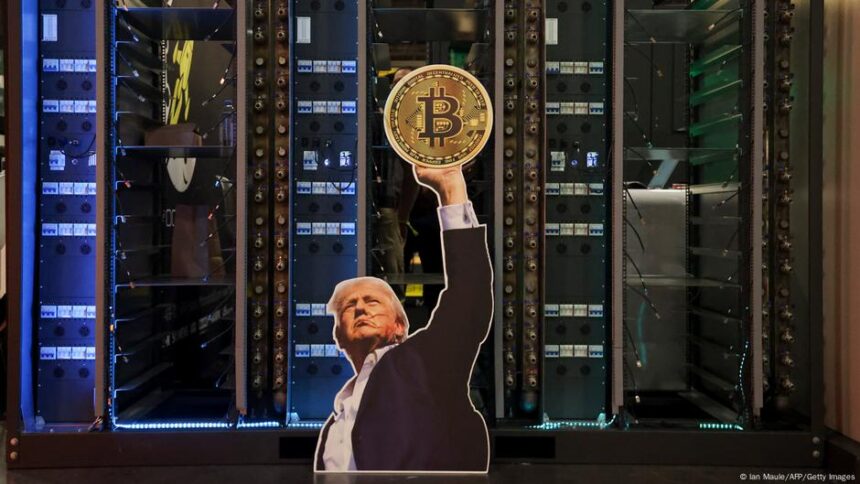US President Donald Trump and his family are reportedly reaping significant financial benefits from cryptocurrency enterprises since his return to the White House, with estimates suggesting profits exceeding $5 billion. This financial gain has ignited claims of unprecedented profiteering by a sitting president, raising questions about ethics and governance.
The Trump family’s cryptocurrency profits primarily come from two companies: World Liberty Financial (WLF), a decentralized finance platform, and American Bitcoin Corp. (ABTC), a publicly traded bitcoin mining firm. WLF, which allows its users to influence lending rules via $WLFI tokens, benefits greatly from sales that leverage Trump’s name. In parallel, ABTC has solidified substantial bitcoin holdings and experienced a 110% increase in its stock price upon its debut.
Reports indicate that a Trump business entity owns a 60% stake in WLF and is entitled to 75% of its revenue from token sales, raising concerns about the intertwining of personal wealth and political power.
Critics argue that Trump’s dual role as both a crypto entrepreneur and policymaker threatens the integrity of governance, potentially allowing dubious actors to influence the president through financial investment in his digital currencies. Legal expert Ross Delston highlighted the risks of such dynamics, suggesting they permit foreign or disqualified individuals to bypass campaign finance laws through crypto investments.
The Trump administration’s shift towards favorable cryptocurrency policies adds another layer to these concerns. Previously critical of digital currencies during his first term, Trump now aims to position the United States as the leading hub for cryptocurrency. This transformation has been marked by significant appointments, including nominating crypto advocate Paul Atkins to head the Securities and Exchange Commission (SEC).
Moreover, Trump’s policies have led to deregulation of the crypto sector. His January Executive Order prohibited any federal agency from creating or promoting a central bank digital currency, while other moves established a Strategic Bitcoin Reserve from seized cryptocurrencies. This summer, he signed the Genius Act, laying down the federal framework for stablecoins.
The blending of political activities with personal financial interests has been highlighted by exclusive social events hosted by the White House, where top cryptocurrency investors gain private access to Trump. Notably, at a recent dinner at Trump National Golf Club, significant investors in Trump’s meme coin, $TRUMP, were rewarded not only with access but also with luxury gifts.
As the crypto sector thrives, US regulators have adopted a lax oversight approach, reversing stricter policies from the previous administration. This has raised alarms among critics who worry about the ethical implications and the potential for regulatory capture, given the trend of dismissals targeting government officials perceived as misaligned with Trump’s agenda.
In response, lawmakers are advocating for increased oversight of the cryptocurrency sector, seeking to establish clearer regulatory frameworks and tighten restrictions on public officials with crypto investments. Critics warn that the current landscape may lead to a surge in criminal activity and regulatory crackdowns once the political ramifications of this presidency unfold.







